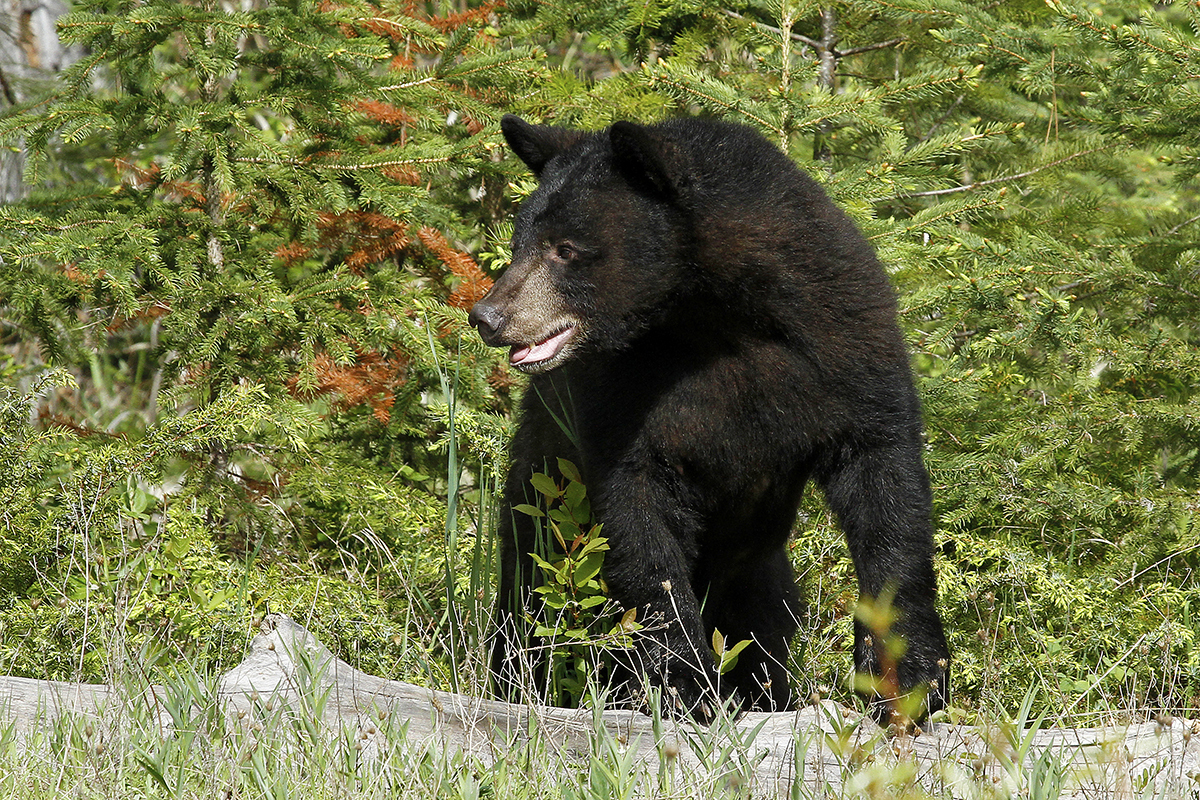Be ‘Bear Aware’ While Camping and Backpacking in Colorado Bear Country

Description: When camping in bear country, the easiest way to avoid bears is to not have anything in your campsite that has a smell that will attract them. Photo Courtesy of Colorado Parks and Wildlife...

Be ‘Bear Aware’ While Camping and Backpacking in Colorado Bear Country
DENVER – Colorado is home to a large population of black bears, estimated at 17,000-20,000 in the state. As humans venture into Colorado’s great outdoors to spend time in nature, it is important to take active steps to avoid conflicts with bears.
Most conflicts between people and bears can be traced to easily accessible human food, trash or other attractants with strong odors. A bear’s natural drive to eat can overcome its fear of humans. When bears become too comfortable around humans, they can destroy property or even threaten human safety.
“Properly storing your food, using bear boxes and bear-resistant canisters and locking your property keeps you safe and can save a bear’s life,” said CPW Area 15 Wildlife Manager Adrian Archuleta, who covers the Durango area. “If you have even a sighting here in Durango, please report it to CPW, so we can be aware. If a bear does come into camp, try to scare it away. Yell, bang pots and pans, or use your car horn, air horn or a whistle and make sure the bear has an escape route. When you are backpacking or camping in an undeveloped area, secure your food properly and avoid attracting bears."
Watch our videos on Camping in Bear Country.
CPW recommends the following outdoor best practices to minimize encounters with bears:
CAMPING
When camping in bear country, the easiest way to avoid bears is to not have anything in your campsite that has a smell that will attract them.
-
Safely store food, beverages and toiletries in campsite lockers called bear boxes (if provided), in bear-proof containers away from your tent or locked in the trunk of your vehicle.
-
Stash your trash. Put all trash in bear-proof trash receptacles or bear canisters.
-
Keep a clean campsite. Scrape grill grates after use and clean used dishes.
-
Never bring food or anything that smells like food - which includes toiletries, sunscreen and even the clothes you wear when cooking - into your tent.
-
Lock cars and RVs whenever you leave your site and at night and close windows.
What if a bear tries to enter a campsite?
Try to haze it away with loud noises such as yelling, banging pots and pans together, or use your car horn or an air horn to scare the bear away. Notify CPW park staff if a bear enters a campsite. As an extra precaution, carry bear spray when you go camping.
BACKPACKING & HIKING
Understanding bear behaviors and your surroundings can help avoid unwanted encounters with wildlife on trails.
-
Stay alert at all times. Avoid using headphones and be extra cautious at dawn and dusk.
-
Keep dogs leashed at all times.
-
NEVER feed or approach a bear.
-
Double bag food and pack out all food waste (including apple cores or banana peels) to avoid encouraging bears to see trails as a food source.
-
Practice the “Know Before You Go” Leave No Trace principle, as some areas may require approved bear-resistant food containers for food and garbage (e.g., Maroon Bells-Snowmass Wilderness).
-
Respect forage areas. If your usual trail runs through berry patches, oak brush or other known food sources, be extra vigilant. Make extra noise by periodically clapping or calling out to alert bears to your presence.
What if you surprise a bear on a trail?
Stay calm, stand still and speak to it in a firm tone of voice. The bear will most likely identify you and leave. Never run from a bear. If the bear does not leave, slowly wave your arms to make yourself look bigger. Continue facing the bear, slowly back away and keep slowly moving away until the bear is out of sight. If the bear gets within 40 feet, use bear spray.
If a bear attacks, do not play dead. Fight back with anything available, including trekking poles, small knives, or even your bare hands.
Sharing outdoor spaces with wildlife makes Colorado a wonderful place to live. Bear sightings from a safe distance can be a rare and wonderful experience for outdoor enthusiasts. Staying bear aware while on trails and camping helps keep bears wild and helps reduce human-bear conflicts.
For more resources and information on how to be “bear aware,” visit cpw.state.co.us.
Related Content:
CPW Searching for Bear that Broke Into Home, Scratched Elderly Woman
CPW Hunts Bear that Bit a Trinidad Camper as he Relaxed in a Hammock; Victim Treated at a Hospital
Colorado Parks and Wildlife Confirms Transfer of Bear from California to Springfield Sanctuary
Follow SECO News on Facebook.
Subscribe to the SECO News YouTube Channel.
Press releases Sponsor




.png)


.png)




.png)



.png)


.png)







